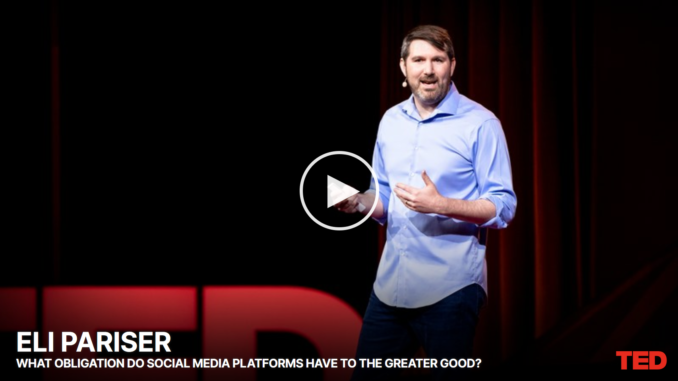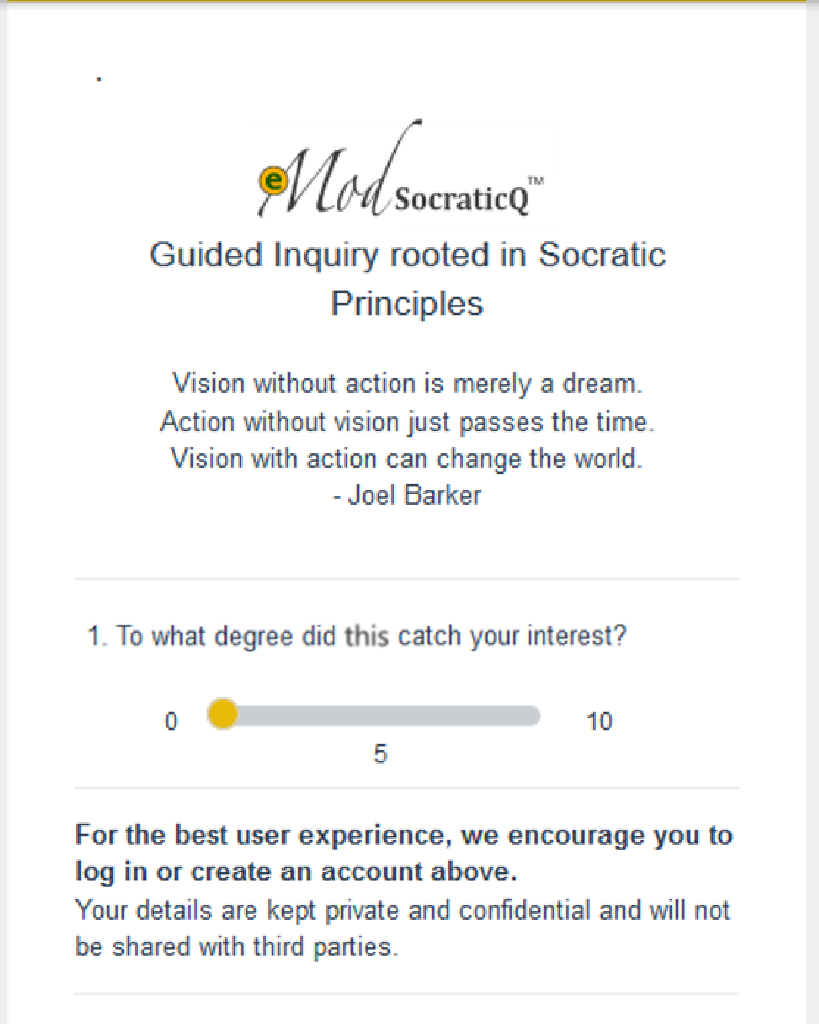
Opening Insights: Digital Spaces
Humanity moves forward when we find new ways
to rely on and understand and trust each other.
ELI PARISER
Most of the places we go online to meet and share the human condition are not designed with our well-being in mind. Rather, they were built to extract the maximum amount of resources from their users. For instance, YouTube originated as an online space for people to share videos. It did that very well, and as a result became very successful, but nothing is free.
To survive, YouTube needed to attract advertisers, which is what "free" online services do in order to keep the lights on. To attract the best advertisers, the content had to attract the highest amount of views. To attract the most views, YouTube needed to figure out how people tick.
Companies like YouTube, Facebook, Google, Twitter and so on, have spent billions in research to learn how to bypass our needs, to get to our wants and to sidestep our reasoning, to get to our feelings. Their services are designed so that we don't think any longer, we just react to stimulus.
Now, YouTube is a purpose-built machine that, while still operating as a video-sharing service, is designed to capture as much of your attention and time as possible. Remember, nothing is free. If the service is free to use, then YOU are the product. The way we access non-paid online services may not change any time soon, but there is something we can do right now to change our experience and our interactions with each other.
Informational Insights: The Spaces We Could Have
In the following TED video, Eli Pariser discusses the dangers of today's online spaces. Simply put, they are filled with untruths and are non-conducive to polite and healthy exchanges between people. They just aren't designed with the wholeness of the user's community in mind and as such are damaging to both the users and their communities.
This video originally appeared on TED Ideas Worth Spreading: What obligation do social media platforms have to the greater good?
Possibilities for Consideration: Building Our Spaces
Eli is right, we could be doing things very different online starting by examining the reason things are the way they are. This situation didn't happen by accident! His suggestion for structure and order are dully noted, but as Peter Drucker said, "Culture eats strategy for breakfast." If we implement a change without changing the culture, then the problem will just come back.
The destructive change in people and in their cultures as a result of the misuse of technology and media was intended to be self-fueling and we can’t just turn it off. Unless we address the underlying cause, our efforts will all have been in vain. What is this underlying cause and how do we address it?
Today’s organizations and communities are beset by an invisible foe that I’ve come to describe as the Shadow Culture™, an undercurrent of hidden agenda and control characterized by:
- Deceive – removing The Truth, replacing it with a truth
- Divide – fanning the flames of adversity, pitting people against each other
- Conquer – fighting among themselves, people hardly notice when their choices are removed
The Shadow Culture™ is quietly, naturally neutralized when confronted by a space of principles, values and common goals. This approach to culture change is applied with a collective focus on mission fulfillment, all done without rules, edicts, policies and impersonal mass-training courses. Addressing this cultural malady will allow us all to change our spaces which, as Eli described, will change our behavior.
Add Your Insight
Take a moment and examine…
- As you reviewed the material above, what stood out to you?
- What is the potential impact, economically and/or socially?
- What action is needed to stop or support this idea?
- You may want to consider whether you:
- want to be aware of,
- should become supportive of,
- would want to be active in this topic?
I have been impressed with the urgency of doing. Knowing is not enough; we must apply.
Being willing is not enough; we must do.
LEONARDO DA VINCI

